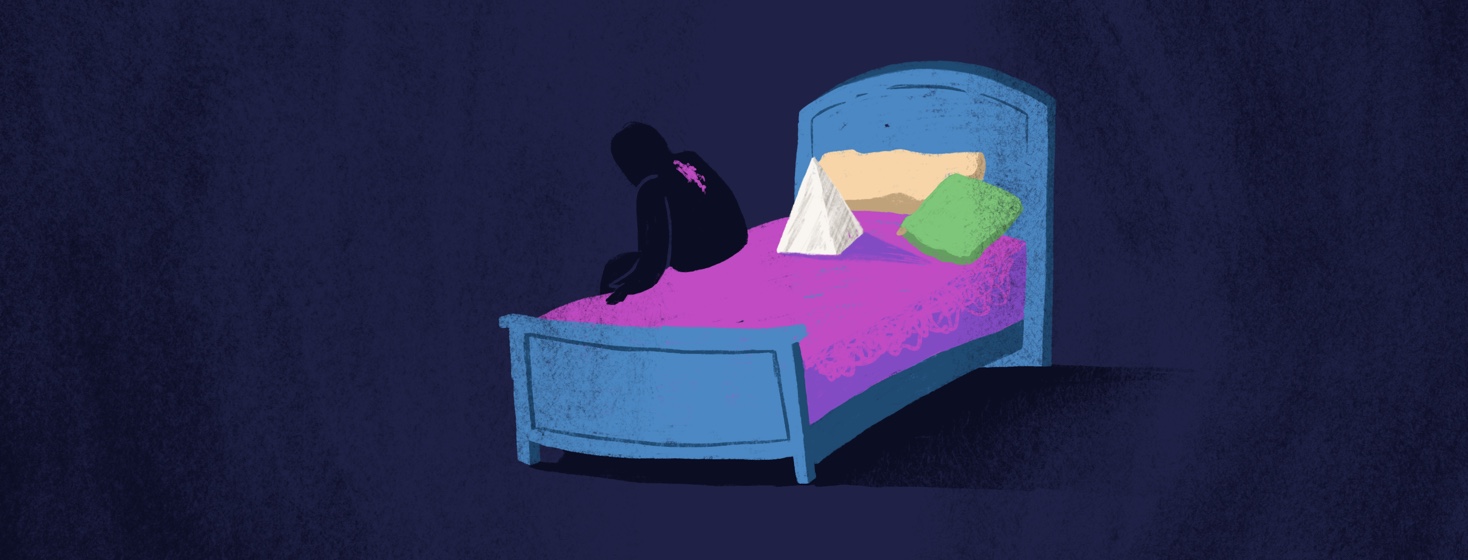Sleep, RA, and Acceptance
Out of all the problems I have experienced with RA thus far in my medical journey, this disease's effects on my sleep are the most potent. From tossing and turning to simply not being able to sleep, I don't think I've had a good night's rest since being diagnosed with RA. There seems to be this devastating cyclical nature to the connection between RA and fatigue: not only does RA utilize more of your body's energy (thereby causing you to feel fatigued), but random joint pains and flares prevent you from sleeping which thereby makes you (you guessed it) feel fatigued. Recently, however, I had an experience so bad that it pushed me to call my rheumatologist the next morning and implore him for a prednisone prescription.
How RA pain affects sleep quality
Another new pain?
I rolled over to look at the clock, intrinsically dreading the thought of knowing what time it was. 2:00 AM. Great. I had just gone to bed at midnight and had thought I slept longer than two hours. I was startled awake by this curious and alarming pain growing in my shoulders. Affecting both shoulders, and right in the ball-and-socket joint, an almost burning sensation spread through my shoulders and into my neck.
I was almost immobilized; I couldn't move my arms above my head, couldn't put on a T-shirt as I stumbled out of bed, and couldn't reach up to open the medicine cabinet for my nightly dose of ibuprofen. "What was happening?" I thought to myself. "I've never experienced pain in my shoulders before and definitely not as severe as this." Needless to say, despite my best efforts, I could not fall back asleep. I lay in bed, eyes wide awake, staring through the blackness at the ceiling of my bedroom.
Processing the challenges of life with RA
It's times like these when my darkest thoughts creep into my brain. As thoughts of "Why has this happened to me?"; "Will I always be in pain like this?"; and "How can I make this form of life sustainable?" enter, almost feeling like they are slowly crawling over my skin, I find myself entering a very negative headspace, a place of hopelessness, of depression, of angst, of just wanting the pain to stop. Throughout life we're told to always be happy; yet, in times like these, I let myself feel every and all negative thoughts that surface. I let myself feel sad, tired, upset, and frustrated because it helps me re-center, it helps me make sense of what RA is and how it is affecting my body.
Reaching a place of acceptance
Barring any serious self-destructive thoughts, I think it is important for all of us to process how we actually feel and open ourselves up to the realization that there were will be many days (and for those with RA, more so than not) in which we do not feel good, in which we do not feel okay. And that has to be okay. No matter what, I am not only my disease, my disease does not define me: it only shapes my experience of myself and the world around me.
While I might not have the best quality of sleep, experiences like these reify that I have to listen to my body and what it is indicating to me. Through my (lack of) sleep, I've come to understand more about this disease and, more importantly, myself and how I perceive the world around me.

Join the conversation